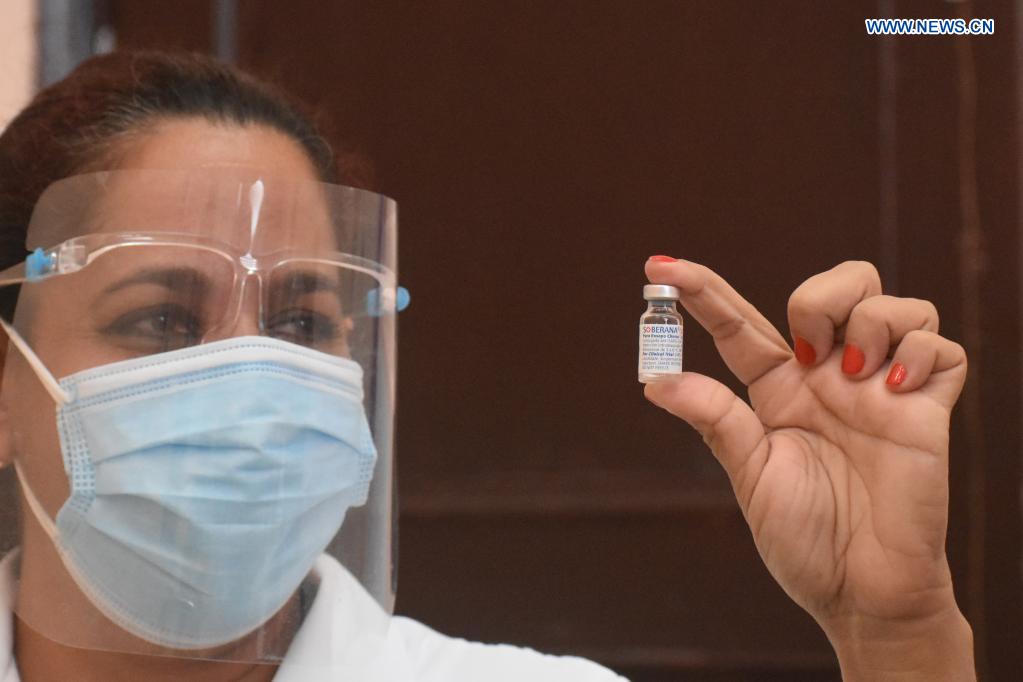
The apparent paradox of Covid-19 positive vaccinees: a story of statistical deception
Vaccinated but Covid-positive: why the numbers from the fourth wave of the pandemic confirm the effectiveness of vaccines
In recent weeks, there has been much discussion on Italian social media and elsewhere about the alleged increase in the number of positive cases among those vaccinated for Covid-19
For many, these cases would show that vaccines are becoming less effective in protecting us from the virus.
Fortunately, however, this is only an apparent paradox, a true statistical deception.
After all, if we don’t know how to read them, numbers can play tricks on us.
The fact that the number of positive vaccinees is increasing is normal: it means that the vaccination campaign is working, that we are approaching a normalised circulation of the virus in the endemic population, and that we will be able to keep the number of hospitalisations and deaths low.
We try to understand why with Massimo Clementi, Professor of Microbiology and Virology at the University Vita-Salute San Raffaele and Director of the Laboratory of Microbiology and Virology at the IRCCS San Raffaele Hospital in Milan.
Vaccine positive for Covid? A nonsense: vaccines are a success, the numbers say so
Let’s start with the statistics on the vaccine, relating precisely to Italian cases, recently published by the Istituto Superiore di Sanità.
According to these figures, the vaccine, if administered in full (i.e. after 2 doses, if required by the type of vaccine)
- reduces Covid-19 diagnoses by more than 88%.
- reduces hospitalisations by 94%.
- reduces admissions to intensive care by 97%.
- reduces deaths by 96%.
“The data confirm that the available vaccines are extraordinarily effective, not only in protecting us from hospitalisation and therefore from serious forms of the disease, but also from milder symptoms, as demonstrated by the reduction in the probability of diagnosis, i.e. of requesting a swab and obtaining a positive result,” explains Massimo Clementi.
And, even more importantly, this efficacy is also confirmed in the case of the Delta variant of SARS-CoV-2.”
Italy / Being Covid positive: contagion in vaccinated people
This does not rule out the possibility that vaccinated persons may become infected. Indeed, the way the vaccine is administered (intramuscularly) means that the antibodies that recognise SARS-CoV-2 circulate in the blood, but are not found in sufficient quantities in the mucous membranes of the respiratory tract.
“This means that those who are vaccinated can still contract the virus, which then manages to complete a few cycles of replication in the upper respiratory tract before being intercepted by the antibodies,’ Clementi continues.
All this, as the effectiveness rates show, almost always occurs without any symptoms in the vaccinated person.
Fortunately, however, the numbers also tell us that those who are vaccinated, while contracting the virus, have a reduced likelihood of transmitting it in turn”.
In fact, according to the latest available data, the probability of a vaccinated person infecting other people is at least 70% lower than that of an unvaccinated person (a figure that reaches 85% in some studies, depending on the type of vaccine). In short, it is not true that the vaccine protects only those who take it, but the whole community.
The apparent paradox of positives among vaccinated people
So why, if vaccines continue to work so well in reducing the risk of falling ill and reducing the circulation of the virus, is the number of positives among the vaccinated increasing?
The answer to the question is almost obvious: because the number of people vaccinated is increasing.
Even if the probability of a vaccinated person testing positive is a tenth of that of an unvaccinated person, the total number of daily positives among the ranks of the vaccinated is bound to increase as the total number of vaccinated people in the population grows.
“We could reach the point (paradoxical, but only in appearance) where there are so few unvaccinated Italians left that most of the Covid-19 positives will have been vaccinated.
After all, if we vaccinated the whole population, we would only have already vaccinated coronavirus-positive people,” explains Massimo Clementi.
“Far from being bad news, it would be the final victory against the virus, since thanks to the vaccines these cases would be very few in any case compared to those that would otherwise occur, and almost always asymptomatic or paucisymptomatic.”
The fourth wave in perspective
Even the fact that we are at the beginning of a new pandemic wave in Italy, if we look at the numbers, is proof that the vaccines are working: the virus is running in the younger age group, which still has low vaccination coverage: under thirty years of age, coverage is just 34%.
This is good news, but it is also a sign that we need to vaccinate younger people, and fast.
Although the probability of hospitalisation or death is very low for those under thirty years of age (similar to that of seasonal flu), younger people, if not vaccinated, contribute to the circulation of the virus, putting the unvaccinated over-sixties, who still make up 14%, at risk.
Having a greater circulation of the virus, therefore with cases on the rise, but few hospitalisations and deaths is, in a sense, the physiological (and hoped-for) result of the vaccination campaign: the sign that we are approaching an endemic, but controlled, presence of the virus in the population,” concludes Massimo Clementi.
“We must not lower our guard just now, however: we need to vaccinate more and faster, catching up with the over-60s still without any dose, which in some regions exceeds 20%, and the younger ones.
If we manage to do this by the beginning of October, we can really hope to return to a normal life soon”.
Read Also:
Covid Vaccine Without Puncture, Messina The First City In Europe: The Device Uses The Nozzle
Argentina Begins Vaccination Of Adolescents Aged 12-17 With Priority Conditions


